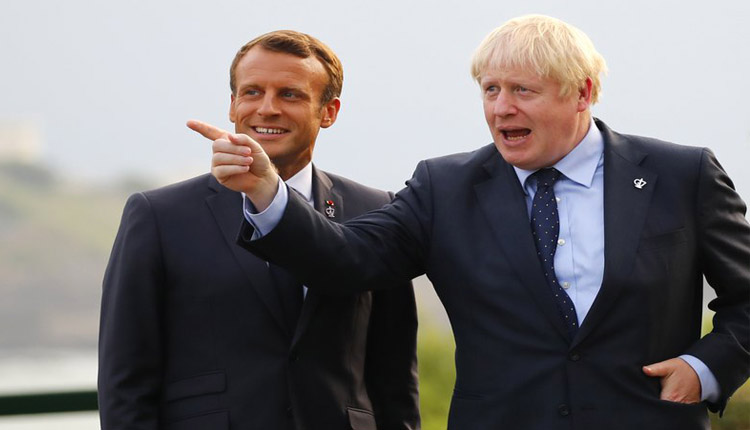British Prime Minister Boris Johnson warned Saturday that getting a trade deal with the United State won’t be “plain sailing” because of barriers to the United Kingdom’s goods in American markets.
But opportunities abound.
Speaking to reporters as he flew to France for the Group of Seven meeting, Johnson cited examples small and large of British goods that struggle in U.S. markets for bureaucratic reasons.
“It’s not just beef or lamb that is currently banned from entering the U.S. in spite of their commitment to overturn that prohibition in 2014. Not a morsel of British beef has entered the U.S. market,” Johnson said.
BIARRITZ, France (AP) — British Prime Minister Boris Johnson warned Saturday that getting a trade deal with the United State won’t be “plain sailing” because of barriers to the United Kingdom’s goods in American markets.
But opportunities abound.
Speaking to reporters as he flew to France for the Group of Seven meeting, Johnson cited examples small and large of British goods that struggle in U.S. markets for bureaucratic reasons.
“It’s not just beef or lamb that is currently banned from entering the U.S. in spite of their commitment to overturn that prohibition in 2014. Not a morsel of British beef has entered the U.S. market,” Johnson said.
“Melton Mowbray pork pies, which are sold in Thailand and in Iceland, are currently unable to enter the U.S. market because of, I don’t know, some sort of Food and Drug administration restriction.”
Johnson badly needs a trade deal with the United States as Britain prepares to leave the European Union and its single market of 500 million people. Europe is Britain’s largest trading partner, and it will need to replace that market with something else.
So Britain is looking to America. And on his way to a face- to-face meeting with U.S. President Donald Trump on Sunday, he came armed with examples of things to talk about: cauliflower, English wine, pillows, rail cars — even parts for showers.
It was as if he were offering a sneak preview of his wish list.
And it wasn’t just goods on Johnson’s radar, but professional services, which far and away make up most of Britain’s economy.
“If you want to sell insurance in the UK you only need to speak to two regulators,” Johnson fumed. “If you want to sell insurance in the U.S. you have to speak to 50 regulators. The same point can be made about architects and many other professions.”
But even though he needs a deal, Johnson was at pains to say he wasn’t giving away the store to get a deal. Some sectors of the UK economy would remain off limits to any deal, such as the National Health Service


